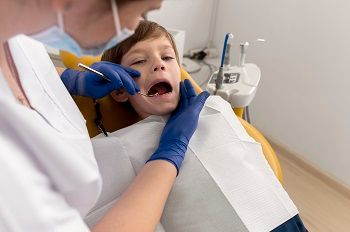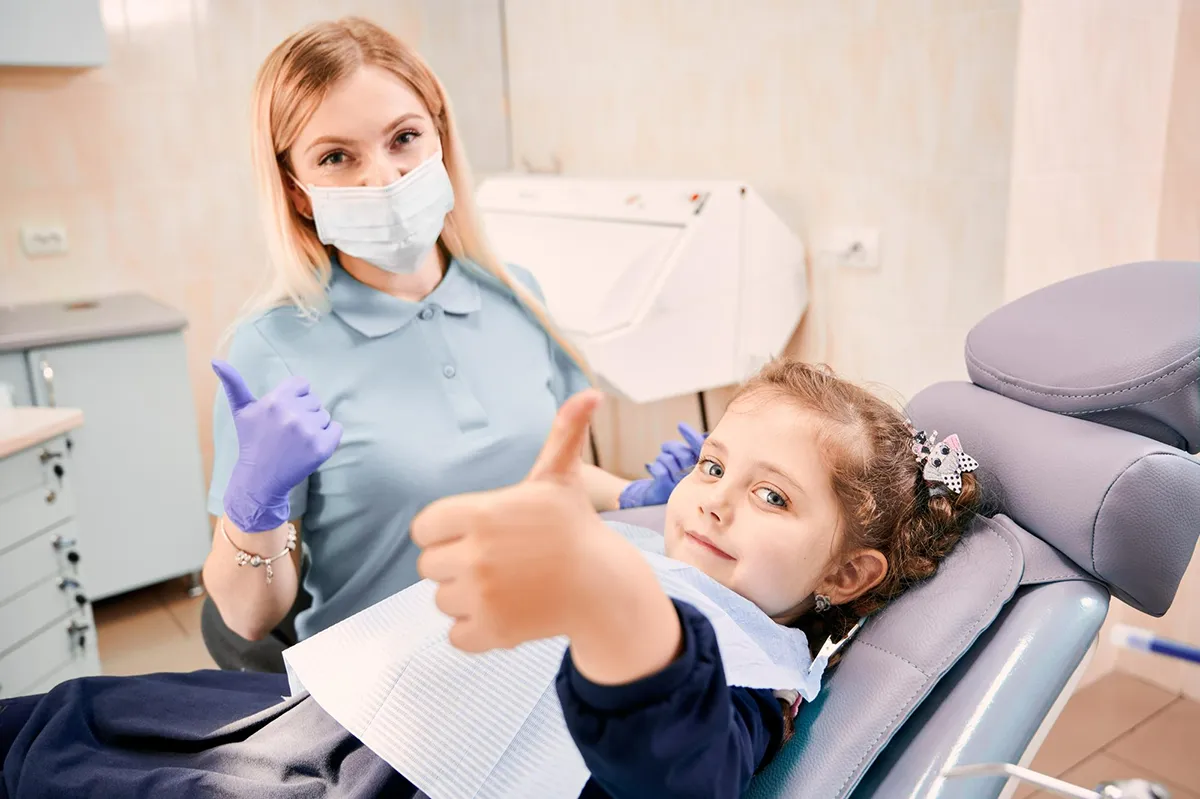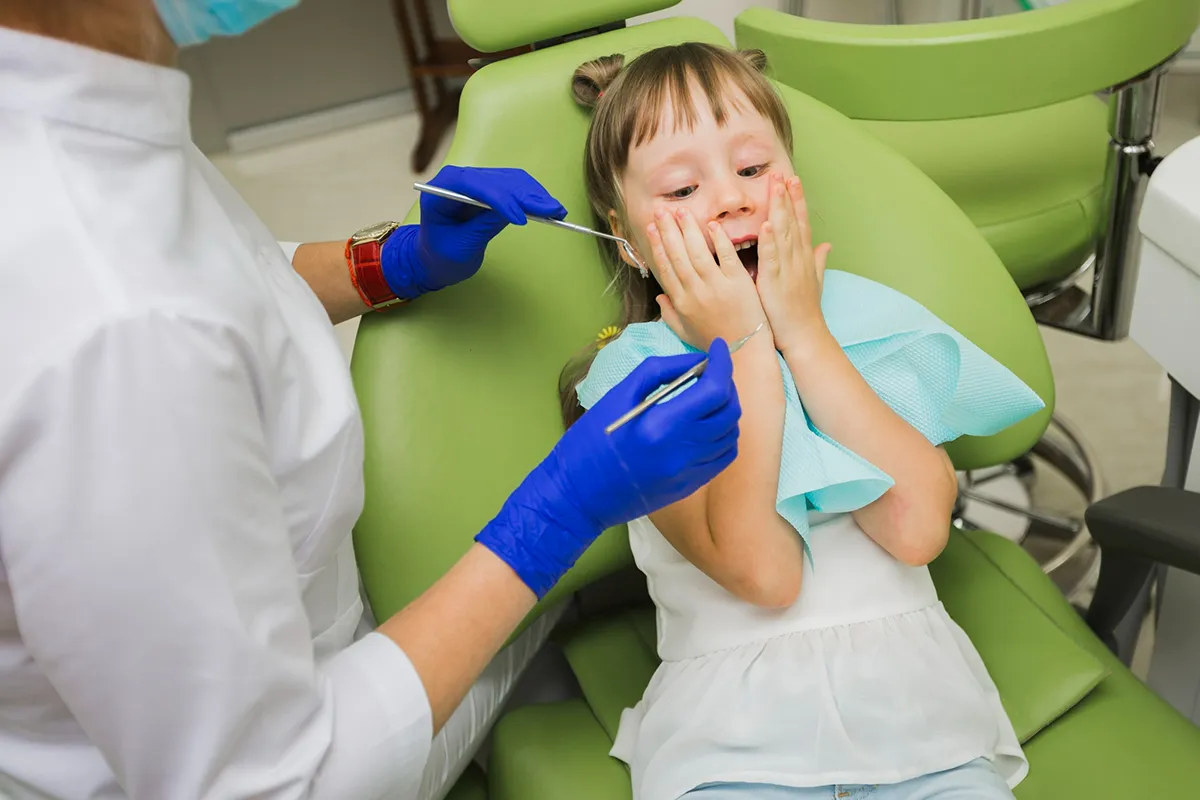When to Start Seeing a Pediatric Dentist: Tips for Parents
Visiting a pediatric dentist is crucial for ensuring optimal oral health care for children. The specialized expertise, early detection and prevention of dental issues, age-appropriate treatments, developmental monitoring, and oral health education provided by pediatric dentists are all instrumental in promoting healthy smiles and establishing positive dental experiences for children.
Ensuring proper dental care for our children is essential to their overall health and well-being. As parents, we often wonder when the right time is to start seeing a pediatric dentist and how to navigate this aspect of our child’s healthcare.
In this blog post, we will explore the importance of pediatric dentistry for children’s oral health, discuss the role of pediatric dentists, and provide helpful tips for parents on when to schedule their first dental appointment. By understanding the significance of early dental visits and implementing good oral hygiene practices, we can set our children on a path toward a lifetime of healthy smiles.
“Children should have their first dental visit within six months after their first tooth erupts or by their first birthday. Early dental visits allow pediatric dentists to identify and address potential dental problems”.
Reasons for Visiting a Pediatric Dentist
There are several important reasons to visit a pediatric dentist. Here are some key reasons why parents should consider taking their children to a pediatric dentist:
- Specialized expertise: Pediatric dentists undergo additional training and education specifically focused on the unique dental needs of infants, children, and adolescents. They have expertise in child psychology, growth and development, and effective treatment techniques. This expertise enables them to provide young patients with the best possible dental care.
- Early detection and prevention: Regular visits to a pediatric dentist allow for early detection and prevention of dental issues. Pediatric dentists are skilled at identifying potential problems such as tooth decay, gum disease, or orthodontic concerns in their early stages. Addressing these issues early on prevents further complications and allows for the initiation of appropriate treatments or interventions.

- Age-appropriate dental care: Pediatric dentists understand that children have unique dental needs at different stages of their development. They provide age-appropriate dental care tailored to each child’s specific requirements. From infancy through adolescence, pediatric dentists can offer guidance on teething, proper oral hygiene techniques, diet and nutrition, and preventive measures such as dental sealants and fluoride treatments.
- Dental anxiety management: Pediatric dentists manage dental anxiety and create a positive and comfortable environment for children. They have techniques to help children feel at ease during dental visits and can alleviate fear and anxiety associated with dental procedures. By promoting a positive dental experience, pediatric dentists help children develop a lifelong positive attitude toward oral health care.
- Monitoring growth and development: Pediatric dentists monitor the growth and development of children’s teeth, jaws, and oral structures. They can identify any issues with tooth eruption, jaw alignment, or bite problems. Timely detection of such cases enables prompt intervention, including orthodontic treatment, to ensure the teeth and jaws develop and align properly.
- Oral health education: Pediatric dentists are crucial in instructing children and parents about proper oral hygiene practices and promoting good oral health. They guide brushing and flossing techniques, diet choices promoting healthy teeth, and avoiding habits. By equipping children and parents with the knowledge to maintain good oral hygiene, pediatric dentists empower them to take control of their oral health.
When to Visit a Pediatric Dentist?
Visiting a pediatric dentist for your child at specific intervals and in certain situations is recommended. Here are some guidelines for when to see a pediatric dentist:
First dental visit: The initial dental visit for your children must be scheduled around their first birthday or within six months after the eruption of their first tooth, depending on which milestone occurs first. This crucial first visit enables the pediatric dentist to evaluate your child’s oral health, offer advice on oral hygiene practices, and respond to any inquiries or concerns you may have.
Regular check-ups: After the first dental visit, it is essential to establish a routine of regular check-ups with the pediatric dentist. The frequency of these visits can vary based on your child’s individual needs and the current state of their oral health. Typically, dental check-ups are best every six months. Still, your pediatric dentist may recommend more frequent visits if your child has specific dental issues or a higher risk of dental problems.

Developmental milestones: Visiting a pediatric dentist at specific developmental milestones is essential. These milestones may include the eruption of new teeth, changes in the bite or alignment of the teeth, or the transition from primary (baby) teeth to permanent teeth. The pediatric dentist can monitor your child’s oral development and guide necessary interventions or treatments.
Oral health concerns: If you notice any problems or issues with your child’s teeth or gums, you must schedule a visit to the pediatric dentist promptly. These concerns may include tooth pain, discoloration, swollen gums, persistent bad breath, or difficulty chewing or speaking. Identifying and treating dental issues at an early stage can significantly reduce the risk of complications and support the promotion of optimal oral health.
Orthodontic evaluation: The pediatric dentist may recommend an orthodontic evaluation for your child. It typically occurs around the age of seven, when permanent teeth start to come in. An early orthodontic evaluation can help identify any orthodontic issues or malocclusions (improper bite) and determine if early intervention or orthodontic treatment will be necessary.
Tips for Parents When Preparing a Visit to a Pediatric Dentist
Here are some suggestions for parents to consider when preparing for a visit to a pediatric dentist:
- Choose a pediatric dentist: Select a pediatric dentist specializing in children. Look for a dental practice with a child-friendly environment and staff members experienced in working with children. It will help create a positive and comfortable dental experience for your child.
- Schedule the appointment at a good time: Consider scheduling the dental appointment when your child is well-rested and more likely to cooperate. Avoid scheduling the meeting during your child’s naptime or when he is hungry or tired.
- Prepare your child in advance: Talk to your child about the upcoming dental visit positively and reassuringly. Explain that the dentist will check his teeth to ensure they are healthy and fully functioning. Avoid using negative or fearful language that may create unnecessary anxiety.
- Role-play at home: Help your child become familiar with the dental visit by role-playing at home. You can pretend to be the dentist and count his teeth or let him play with a toy dentist kit to familiarize him with the dentist’s tools during the appointment.
- Share positive experiences: Share positive stories or experiences about your dental visits or those of your siblings or friends. It can help alleviate any fears or concerns your child may have and reinforce a positive attitude toward dental visits.
- Be a calm and supportive presence: During the dental appointment, be present and supportive of your child. Offer comfort and reassurance, and consider bringing along his favorite toy or blanket for added comfort.
- Address any concerns or questions: Take the opportunity to discuss any concerns or questions you have with the pediatric dentist. The dentist can guide oral hygiene practices, diet, and any specific problems related to your child’s oral health.
- Follow-up on recommendations: If the pediatric dentist recommends any follow-up treatments, such as dental cleanings, fluoride treatments, or orthodontic consultations, schedule those appointments to maintain your child’s oral health.
Remember, pediatric dentists are experienced in working with children and strive to create a positive and comfortable environment. By following these tips and working with the dental team, you can help make your child’s dental visit a positive and beneficial experience for his oral health.
Thoughts
Parents can play an active and dynamic role in their child’s dental health journey by choosing a reputable pediatric dentist, scheduling appointments at suitable times, preparing their child for the visit, and addressing any concerns or questions. Parents can contribute to their child’s oral health and well-being by working with the dental team and following their recommendations.
Essentially, a visit to a pediatric dentist goes beyond routine dental check-ups. It involves investing in your child’s future by promoting a healthy smile and fostering a positive attitude towards dental care, which forms the basis for maintaining good oral health.
Contact Stockton dentist for kids, Sajjad Rizvi DDS, at Happy Kids Dental to learn about Pediatric Dentist: Tips for Parents.
Resource:
Importance of Pediatric Dentistry for Kids
*This media/content or any other on this website does not prescribe, recommend, or prevent any treatment or procedure. Therefore, we highly recommend that you get the advice of a qualified dentist or other medical practitioners regarding your specific dental condition*
Subscribe To Our Newsletter
Get Updates And Learn From The Best


